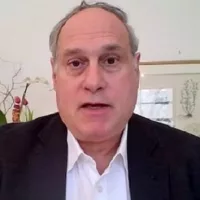
The American Civil Liberties Union’s lead attorney described to ABC News the rapid pace of legal action that led to the extraordinary ruling from the Supreme Court early Saturday morning that blocks the Trump administration from deporting Venezuelans to a prison in El Salvador.
Lee Gelernt said the ACLU began to learn Thursday night that the migrants could be moved from a detention center in Texas as early as that night, so they filed in the middle of the night.
“We just kept pushing and ended up filing in multiple courts, and ultimately the Supreme Court, at 1 a.m. on Friday night, early Saturday morning, stopped the removals,” Gelernt said in an interview with ABC News. “But it was touch and go for a long time.”
The ACLU says migrants held in the Texas detention center received a notice and were told they’d be removed in 12 to 24 hours.
“Under the Alien Enemies Act, you have been determined to be an alien enemy subject to apprehension, restraint and removal from the United States,” the notice reads, which was filed in court by the ACLU.
The document is written in English and says migrants can make a phone call, although it does say the notice will be read to the individual in a language they understand. It did not include any method to contest the order.
“The government is providing only 12 to 24 hours with a notice that was served in English that does not explain that people have the right to contest, nor tell them how to do it or how much time they have to do it,” Gelernt said. “There is no argument whatsoever that these notice procedures comply with the Supreme Court’s directive.”
The girlfriend of one of the migrants held in the detention center told ABC News he received a document that appeared to be the same one that the ACLU filed in court. She says he told her it was hard to understand.
She added that he said he and a group of detainees were taken to an airport near the facility on Friday and they were about to be deported. Then, he told her, once they arrived, an officer informed the group they were being sent back to the center and would not board the plane.
Gelernt said the stakes couldn’t be any higher and that Kilmar Abrego Garcia — the Salvadoran native living Maryland who was deported in March to a mega-prison in his home country — isn’t the only person who was “erroneously” sent to the notorious CECOT mega-prison in El Salvador.
“They’re unilaterally claiming that people are members of a gang, but not giving them the opportunity to go into court and show they’re not. And we know that multiple, multiple people have been erroneously tagged as members of this gang, but once they get to the El Salvadoran prison, they may never get out for the rest of their life,” Gelernt said.
“It’s critical that we give them hearings before we take such an extraordinary action,” he added.
Copyright © 2025, ABC Audio. All rights reserved.













